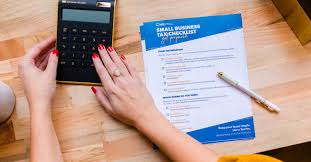Tax Prep Checklist – What Your Accountant Needs to Prepare Your Taxes
If you’re part of the roughly 60% of Americans who pay someone else to prepare their tax return, then there’s a good chance that you’ve had to make more than one visit to the preparer’s office because you forgot something. Since preparing taxes happens only once a year, we’ve put together a little refresher to help you gather all the documents you need beforehand.
Identification
Even if you’ll be returning to the same tax preparer you’ve used for years, it’s always wise to bring along some identification. This is especially important if you plan on requesting a refund anticipation loan (rapid refund), since preparers are required to keep a copy of your current ID on file.
It’s always a good idea to bring Social Security cards for yourself, your spouse and any dependents rather than trying to recite them from memory. A mistake of even a single digit will result in your return being rejected, and that can mean a delay in getting any refund you are entitled to.
Proof of Income
Your income tax return must reflect all of your income – not just most of it or what you remember. This is important because any income that doesn’t make it onto your return can result in penalties and interest for under-reported and under-paid taxes.
For tax purposes, income is any money you receive from any source that is not a gift. This includes social security, retirement benefits, sale of real estate, investments (including dividends), bank interest, alimony, gambling and, of course, wages. Income from your job, or jobs, will be reflected on W-2s. All other sources of income, such as money earned as an independent contractor, will be reported on a 1099 of one form or another.
Some often overlooked sources of income that you will need to have documentation for are:
- Foreign earned income
- Rental income
- Income from hobbies
- Unemployment
- Prizes
- Debt that has been forgiven
Proof of Expenses
Many people don’t itemize their returns and therefore fail to bring proof of expenses with them to the tax preparer. This is a bad practice, as any deductible expenses that you have which are greater than the standard deduction will reduce the amount of taxes you owe or increase the size of your refund. For tax year 2019 (what you’ll file in early 2020), the standard deduction is $12,200 for individuals, $12,400 for married couples filing jointly and $18,350 for those filing as head of household. Tax-deductible expenses that can lower your tax burden include:
- Self-employment expenses, such as mileage and equipment
- Un-reimbursed employee business expenses, such as travel and client meals
- Certain education expenses related to your job
- Medical expenses (over 10% of your adjusted gross income)
- Charitable contributions, including non-cash donations, such as clothes or food
- Mortgage interest
- IRA contributions
- Union dues
- The cost of last year’s tax preparation
Proof of Losses
Losses occur as a result of things like natural disasters, fire, theft and other unexpected catastrophes. Bring along proof of the event in the form of police or fire reports, insurance claims and other official documentation that spells out what occurred and when. If you’ve received partial payment in the form of insurance or federal or state disaster relief, bring that along as well.
Blank Checks
There are two reasons you should bring blank checks along to your tax preparation appointment: if you owe, it’s a good idea to write the check right there and mail your payment in when you leave the office, and if you’ll be receiving a refund and would like it directly deposited into your bank account, you have the information on hand.

Get all the tax forms you’ll need
As with deadlines, the specific tax forms you’ll need depend a lot on the particular business entity you’ve chosen to use for your small business.
Each type of business needs slightly different forms, but the general idea is the same: Returns typically include a summary page that offers a high-level look at your tax picture, with supporting schedules and attachments to dig into more detail and provide more granular information.
Having the right forms is crucial to meet the rules.
Tips on the most common tax forms you’ll need:
- Sole proprietorships use Form 1040, especially Schedule C, to report business income and expenses.
- C corporations file their taxes on Form 1120.
- S corporations use a special Form 1120-S from the IRS.
- Partnerships must complete Form 1065 and then provide individual partner information on Schedule K-1.

Gather Your Financial Records
While providing the right personal information is essential if you want your tax return to be properly processed, you will also need a substantial amount of financial records on hand to make sure that you correctly fill out the necessary tax forms.
The most common financial records that you will need to have include:
- Income statement: This is a profit and loss statement that displays how much income your business lost or generated during the year by subtracting your expenses and the cost of goods from overall revenues for the year
- Balance sheet: This is a statement of your company’s financial position that lists the owner’s equity as well as any assets and liabilities that the company has
- Bank and credit card statements: These are monthly documents that state what the balance was in your company’s bank account and credit card for each month of the year
- Payroll documents: This is an extensive breakdown of the wages and deductions that your employees were allotted for each payment period
- Previous year’s business tax return: When you’re filing your company’s taxes for 2020, you will need to obtain the tax return from last year, which is effectively the 2018 return
- Partnership agreements: This is a simple contract between each partner in a business partnership, which is used to identify the terms and conditions of the partnership
- Accounting documents: These are original records of all financial transactions that your business had during the year, which could be anything from receipts and invoices to orders and credit memos
- Asset purchase details: If your business purchased assets from another company during the year, it’s important that you provide details about this agreement
- Depreciation schedules: When you own a company, it’s possible to deduct some of the property and pieces of equipment that are necessary for making income, which is why you need to determine the depreciation schedules of these assets for your taxes

Get documentation for business expenses
Many lucrative tax breaks are available to small businesses, but you typically have to be able to prove that you qualify for them. Sometimes, you’ll have to submit that evidence to tax agencies in order to claim your tax benefit, while in other cases, it’s sufficient for you to have it available.
Often, receipts are sufficient to document expenses. But with some deductions, more extensive proof is required. Be sure to get the right information for the right deduction, and doing it correctly up front is much more efficient than having to get corrected information later down the road.
Tips on common small business expenses:
- Many expenses, such as insurance, overhead costs, supplies, utilities, and professional fees, don’t involve a lot of extra documentation.
- With some tax breaks, though, a lot more information is needed. Those include the home office deduction, transportation, meals and entertainment, and small business health insurance expenses.
- Checking with a tax professional occasionally to see if you’re capitalizing on all available tax breaks can be extremely lucrative.
Look for Tax Deductions and Credits
Tax deductions and credits are highly beneficial when filing your taxes because they allow you to lessen the amount of money that you owe or increase your tax refund. Keep in mind that deductions and credits function slightly differently. For instance, deductions lower the amount of business income that can be taxed. On the other hand, credits directly lower the amount of money that you owe.
A few common tax deductions for small businesses include:
- Work opportunity
- Small employer health insurance
- Disabled access
There are also numerous expenses that you can claim deductions for, which include:
- Charitable contributions that your company has made
- Travel expenses
- Home office expenses
- Business use of a car